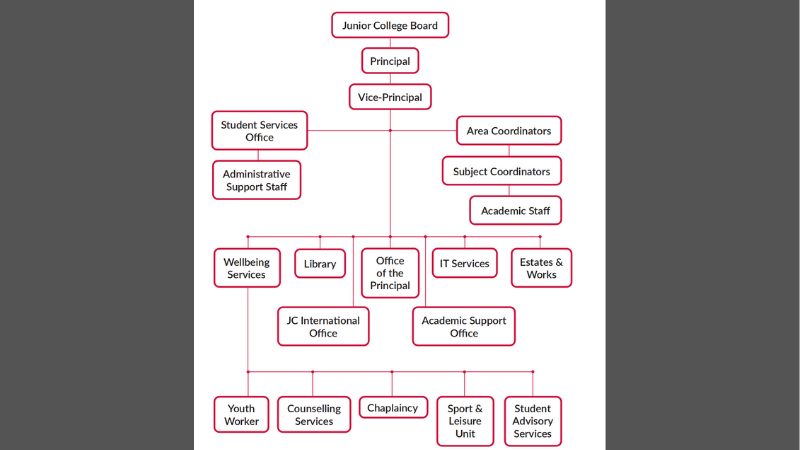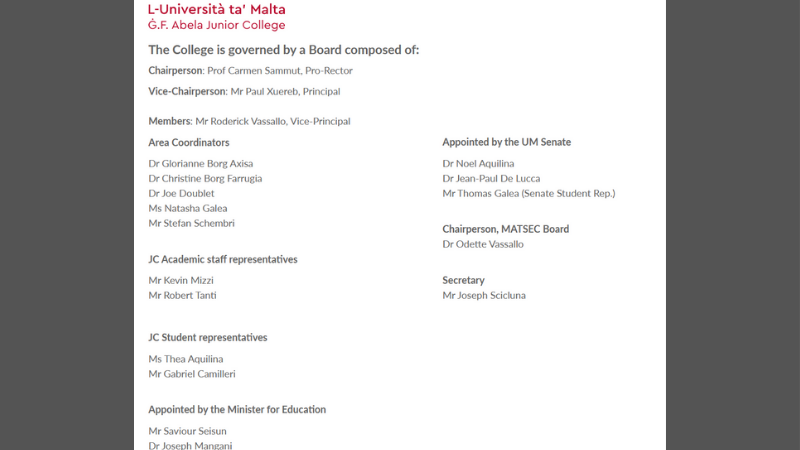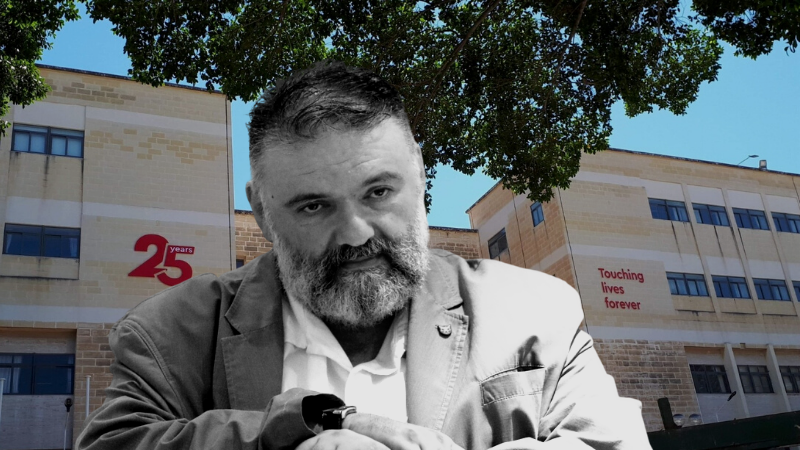The lowering of Junior College entry requirements is just one example of the way in which educators are being ignored by those setting policy, author Immanuel Mifsud, who spent two decades as a lecturer at the institution, told The Shift in an interview about the government’s failure to consult with teachers about the change.
“Educators always felt sidelined” in system changes made over the years, he said, “except to implement what others designed according to some philosophy which is never discussed”.
Mifsud said that he believes educators are either not trusted or not considered proficient enough to discuss their profession and all its matters, describing the root of the problem as a “procedural and cultural” one.
Since the implementation of Legal Notice 105 of 2022, prospective Junior College students who formerly required a compulsory passing grade in English, Maths and Maltese along with three other subjects will now instead require only one of those three previously compulsory subjects. A passing grade in at least six subjects is still required.
Mifsud, along with two other teachers who spoke to The Shift on condition of anonymity, argued that “educators are expected to adapt and comply” to these changes, and most lecturers at Junior College were not aware of the plans to push the Legal Notice through.
While several members of the Junior College board have justified the change in regulations, claiming that it allows more students to continue studying even when they lack one of the core subjects, the teachers consulted by The Shift insisted this decision is an attempt to conceal problems with the educational system that are revealed by national statistics.
“To me, this is about inflating numbers. Giving everyone equal opportunity is about opportunity for all irrespective of social class, race, faith and so on, not irrespective of whether we will waste your time giving you the impression you can do well if you can hardly write properly,” one of the sources stated.
The two educators who spoke to this newsroom described how the structure of the Junior College board, one of the main decision-making bodies in its structure, operates as a top-down hierarchy and regularly fails to consider feedback from educators.
The board, chaired by pro-rector Carmen Samut, is the body that proposes regulations. Junior College principal Paul Xuereb is vice chairperson and Junior College vice-principal Roderick Vassallo is a member. Academic staff at Junior College are overseen by subject coordinators, who are in turn supervised by area coordinators.
Subject coordinators are selected by the principal following consultation with relevant departments, while area coordinators are chosen by the principal subject to the approval of the University’s Council.
Almost half of the members of the Council are directly appointed by the prime minister or the minister of education “to represent the general interest of the country”, according to the University of Malta website.
“Teachers need to be autonomous, allowed to be creative in their approach and to be involved in decision-making,” one of the sources maintained.

A chart showing the Junior College’s official hierarchy. Source: Junior College website.

A screenshot from Junior College’s website showing the members of its board.
“When they decided that they were going to change the entry requirements, neither the lecturers nor the subject coordinators knew anything about it. In fact, most of them were really outraged. The mechanism which makes that kind of decision possible is the election process for coordinators,” they added.
“Subject coordinators are not chosen directly by the staff – while the principal does reach out to lecturers for advice, it’s up to him to choose, with the Senate approving or not approving that decision,” they added.
This structure, the educators argued, is what allows for changes to regulations to be made without direct, meaningful consultation with the same academics who are entrusted with the responsibility of educating students.
“When it comes to reforms in education, there is a general and traditional lack of voice given to educators to participate in decision making. This reform is only one example of this lack of voice,” Mifsud said when asked about what sorts of problems such a hierarchy might cause.
‘Malta’s education system is failing’
The educators who spoke to The Shift all concurred that lower pass marks, less demanding exams, and now a concession to enter the university College with missing core subjects “prove how much our education system is failing”.
“It seems that our administrators are trying to put Malta at par with other member states not by ensuring better education but by making it easier for youngsters to further their studies, or rather stay on at the post-secondary level, inflating numbers at the expense of quality,” Mifsud argued.
The two anonymous sources further argued that “there is a reason” why Maths, English and Maltese are considered “core subjects”.
“They are trying to impose ridiculous changes at a point in students’ lives when it is already too late to address certain learning blocks pertaining to basic writing and maths skills, and that nobody is addressing deeper problems that should be targeted, studied and analysed at primary school level,” one of the sources said.
The same source described Junior College as a “microcosm of Malta” because of the way policy planning is carried out with lip-service consultation or without scientific assessment.
“Things are carried out behind our backs and it very often comes across as treachery, with this latest change being the last straw,” they added.















A government of numbers and not quality, leading to fake statistics to boast about.
I recall a Professor Metwally, who had been commissioned by Prime Minister Dom Mintoff, to carry out a professional report covering education and the economy. He had concluded that we had a system which produced ‘illiterate graduates’ (cannot remember the exact words). When he published the report and presented it to Mintoff, he was sacked and kicked out of Malta.
I cannot find a copy of the report I had, and suggest to the Shift to try and procure it.
We seem to be progressing in reverse mode, but still on a PL branded vehicle.
These educators are totally right but they have failed to understand the underlying motives behind these changes. Why now?! Bottom line, youths could now vote at 16, so the government requires new tools to entice this cohort to vote for them. It’s another perverse mechanism by which students are manipulated into believing that achievement through hard work could be overruled through political means. On the grander scale of things, within our kleptotcracy breeding ignorance and placing inept individuals in high places is useful for its survival.
This decision is the bottom of the academic education standards in Malta.
How can one learn anything unless the basic is learnt.
We start by learning recognising the Numbers and the Letters of the Alphabet.
Now these wise guys are telling us that we can study literature while knowing only to recognise the letters a to k and we can learn multiplication of numbers while learning to write the numbers 5 to 9 because we are knowledgeable from 1 to 4 but still trying to get the grips of what 0 does to the numbers near it. It is a known fact of the bad standard of English with graduates . Even spelling mistakes in the printed media because the word speller is what keeps some misspelling under control, but then grammar has vanished and without a calculator the world in the office stops going round.